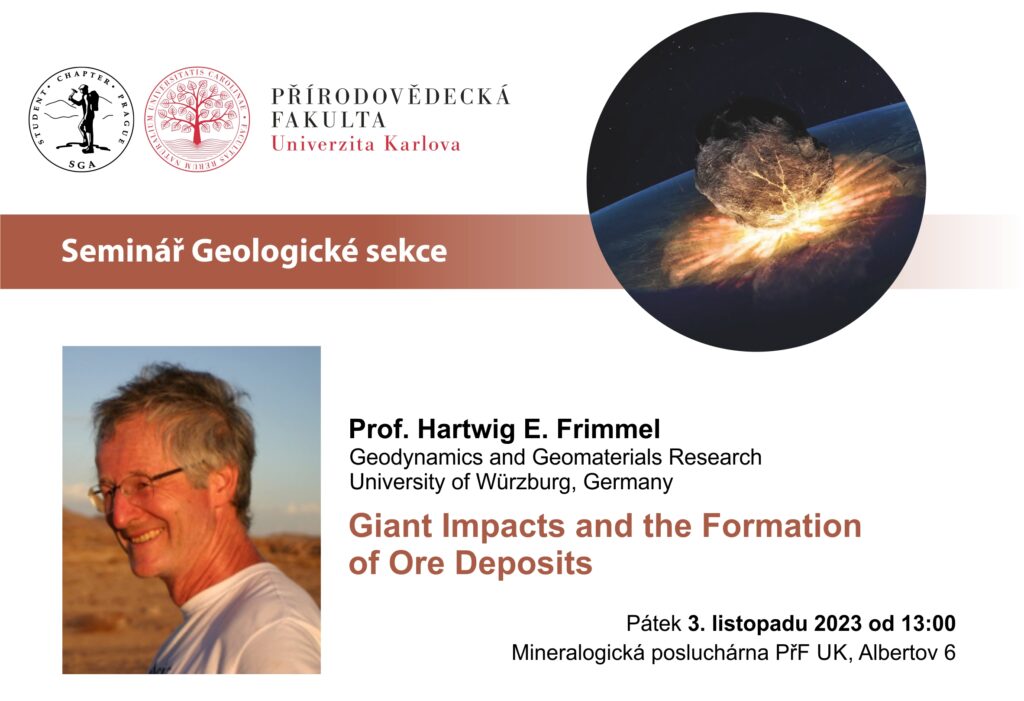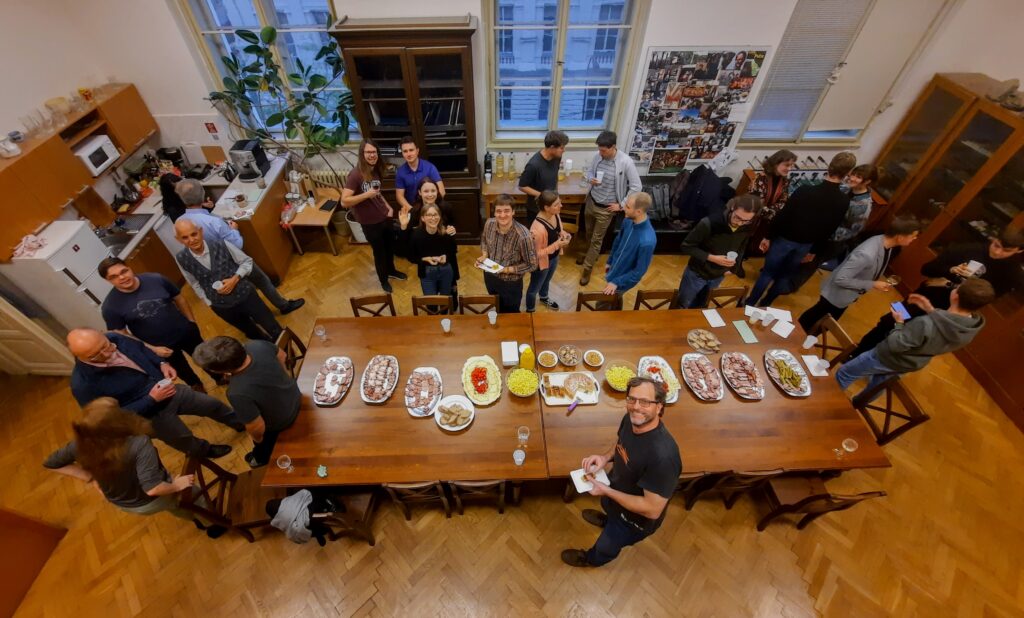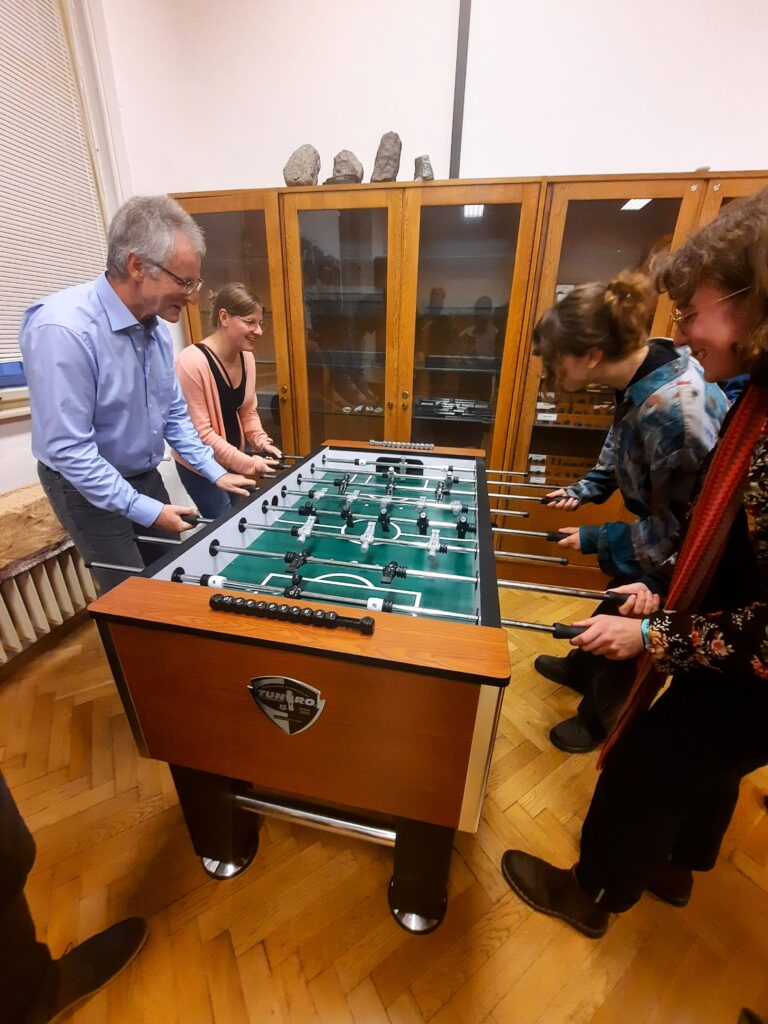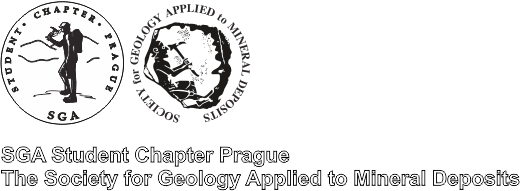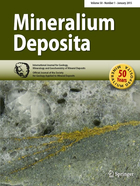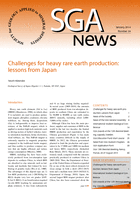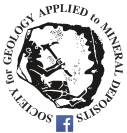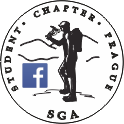Jan Kulhánek1,2
1SGA Student Chapter Prague
2Institute of Petrology and Structural Geology, Faculty of Science, Charles University, Prague, Czech Republic
The SGA Student Chapter Prague was honoured to host a seminar for the entire geological section of the Faculty of Science, Charles University in Prague, featuring Professor Hartwig E. Frimmel from the University of Würzburg, Germany. The lecture, held on November 3rd, 2023, drew a diverse audience ranging from bachelor students to professors, reflecting the broad appeal of the topic, “Giant Impacts and the Formation of Ore Deposits,” within the geological sciences community.
The presentation was supplemented with a succinct annotation: “Some of the largest impact sites known on Earth overlap in space with exceptional concentrations of ore deposits. This has led to speculations on a potential addition of extraterrestrial metal compounds to the Earth’s crust on an economic scale. Using the three largest impact structures as reference, the likely controls of large impacts on metallogeny will be discussed, and it will be shown that metal endowment is strongly controlled by the regional geological make-up of the crust prior to impact.”
Inviting Professor Hartwig to our faculty provided a unique opportunity not only to hear his lecture but also for students to engage with a renowned figure in the field of geology. To underscore the significance of Professor Hartwig’s contributions, we would like to share a brief overview of his biography:
Hartwig E. Frimmel, who obtained his PhD in geology at the University of Vienna, is Professor and Chair of Geodynamics and Geomaterials Research at the University of Würzburg, Germany. He is also associated with the University of Cape Town where he had previously climbed the academic ladder from lecturer to associate professor. He was leader of the Earth Science subprogram within the South African National Antarctic Program, member of the Geoscience Scientific Standing Committee of the Scientific Committee on Antarctic Research (SCAR), former president of the Society for Geology Applied to Mineral Deposits (SGA), and director of Lithoscope consultancy. He has served on several editorial boards (incl. Mineralium Deposita for the past 23 years), on the International Commission on Stratigraphy, as assessor for numerous national research funding and government agencies, and as consultant to mining/exploration companies as well as government bodies. His research interests developed over more than three decades from metamorphic geology and fluid-rock interaction to metallogenesis and economic geology. A special focus has been the study of sediment-hosted base metal and gold deposits, especially those of the Witwatersrand-type. His research output includes more than 200 articles and book chapters as well as three books.
After the lecture, an engaging discussion was organized in the meeting room of the Institute of Petrology and Structural Geology, providing students with the opportunity to further delve into the topics covered by Professor Frimmel’s presentation. Against the backdrop of pleasant refreshments, students exchanged ideas and posed questions, enriching their understanding of the subject matter and discovering more about the Prof. Frimmel broad experiences from the world. Later in the evening, a dinner meeting was organized at a local restaurant, bringing together representatives from the SGA (Hartwig Frimmel and Anna Vymazalová, members of the SGA Executive Committee, and Prague Chapter representatives) for further networking and discussions. This gathering offered an informal setting for participants to connect with SGA representatives, facilitating valuable exchanges of ideas and insights. We extend our gratitude to Professor Frimmel for his engaging lecture and enthusiastic participation in post-seminar discussions. Our gratitude belongs to the SGA, namely SGA Keynote Speaker Program, and the Geological Section of Charles University for generously supporting the organization of this event. Their contributions made it possible to host Professor Frimmel’s lecture and facilitate enriching discussions and networking opportunities, enhancing the academic experience for all participants.
